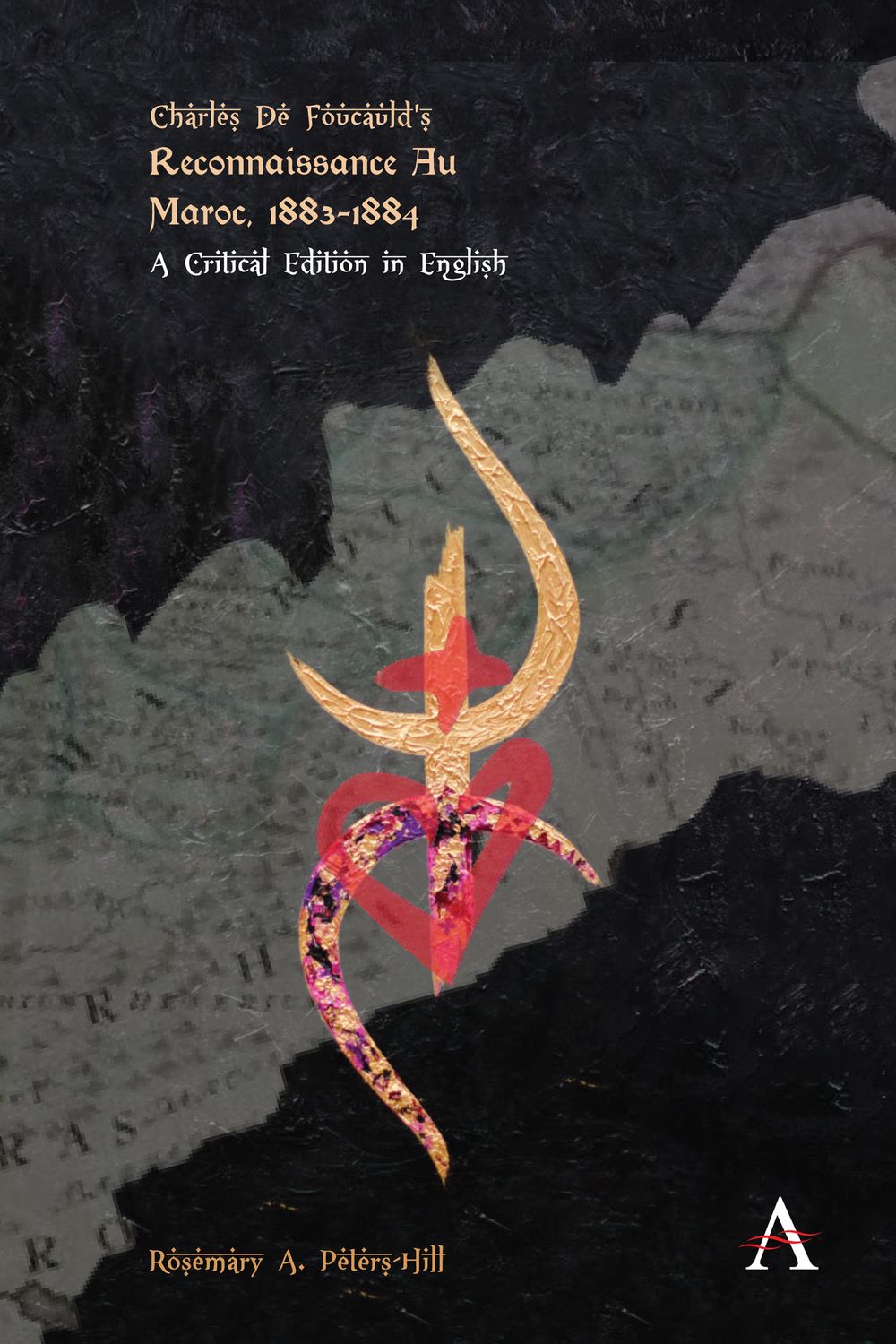Charles de Foucaulds Reconnaissance au Maroc, 18831884
Womanizer – Delinquent – Glutton – Deserter; Visionary – Linguist – Explorer – Hermit. The lexical fields do not match, yet both sets of descriptors apply to one man: Blessed Charles de Foucauld (1858–1916), one of nineteenth-century France’s most complex and challenging figures. Upon graduation from the prestigious École de Saumur, Foucauld went to North Africa with his cavalry regiment. In a sense, he never went home: the desert had called to him, converted him even, and the once-renegade scion devoted the rest of his life to studying the land and culture of North Africa and preserving its language and traditions. The two halves of his life part almost mathematically: a dissolute, disconsolate orphan whose wealthy family, peers, and superiors did not know what to do with him; and then an intuitive, dedicated scholar and priest who revolutionized European knowledge of Morocco’s geography and culture, and defied the mission civilisatrice by refusing to evangelize the Berber population among whom he lived. Foucauld’s biography typically divides into these two sections, with his youth glossed almost as a fleeting adventure and clear priority assigned to his later years as a hermit and spiritual director. This book seeks to turn that model on its head. Rosemary Peters-Hill provides an in-depth examination of the year Foucauld spent exploring Morocco in 1883–1884, after he had resigned his army commission and taught himself Arabic and Hebrew. This book is more than merely a translation: it is a meticulously researched and documented critical edition that addresses the history of nineteenth-century French colonial endeavors and Moroccan resistance to them; cultural traditions and spaces within the closed country where Foucauld sojourned; the intersections of language, politics, and economics with religion; the praxis of Arabic and Berber interactions and the ways in which official cartographies neglect local knowledge of tribal and seasonal rituals; and the failures of Empire when it comes to defining or delimiting national identity. Peters-Hill, as a literary scholar, also brings to bear a careful examination of Foucauld as author: the ways he pitched his account toward government bodies likely to pay attention to them, his use of literary tropes within his memoir, his narrative agency. And the way these things change: through Foucauld’s encounter, and increasing identification, with Morocco as not just a backdrop for imperial expansion but a subject and a plurality of voices in its own right. As Foucauld’s narrative advances, so too do its Arabic inflections, its lyricism about landscape and cultural practices, its investment in documenting and preserving Morocco’s own specific history. Another, much later, Foucault (Michel) would write that space itself has a history: he might well have been inspired by Charles de Foucauld’s conversion and dedication to the specific selves and possibilities discovered during his immersion in Moroccan space. Peters-Hill has written a study of Charles de Foucauld’s youthful undertaking in unknown territory that seeks to represent as honestly as possible both the evolution of Foucauld’s mindset regarding French engagement in Morocco and the consequences of his work in that country. While delving into how the author is changed by Morocco, she nonetheless holds Foucauld accountable for his nationalist and religious biases, the details he discounts or ignores, the unavoidabl
-
Autore:
-
Anno edizione:2020
-
Editore:
-
Formato:
-
Lingua:Inglese
Formato:
Gli eBook venduti da Feltrinelli.it sono in formato ePub e possono essere protetti da Adobe DRM. In caso di download di un file protetto da DRM si otterrà un file in formato .acs, (Adobe Content Server Message), che dovrà essere aperto tramite Adobe Digital Editions e autorizzato tramite un account Adobe, prima di poter essere letto su pc o trasferito su dispositivi compatibili.
Cloud:
Gli eBook venduti da Feltrinelli.it sono sincronizzati automaticamente su tutti i client di lettura Kobo successivamente all’acquisto. Grazie al Cloud Kobo i progressi di lettura, le note, le evidenziazioni vengono salvati e sincronizzati automaticamente su tutti i dispositivi e le APP di lettura Kobo utilizzati per la lettura.
Clicca qui per sapere come scaricare gli ebook utilizzando un pc con sistema operativo Windows



